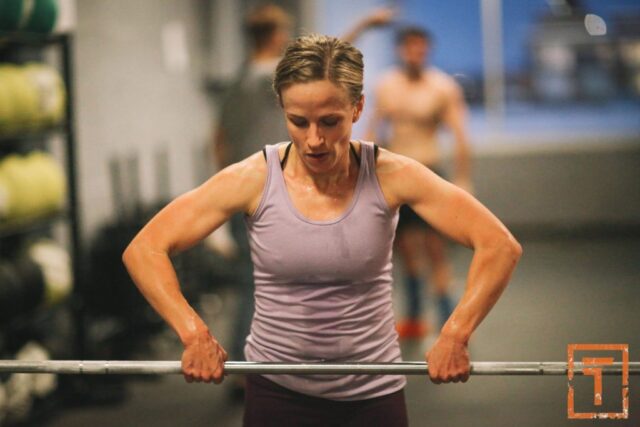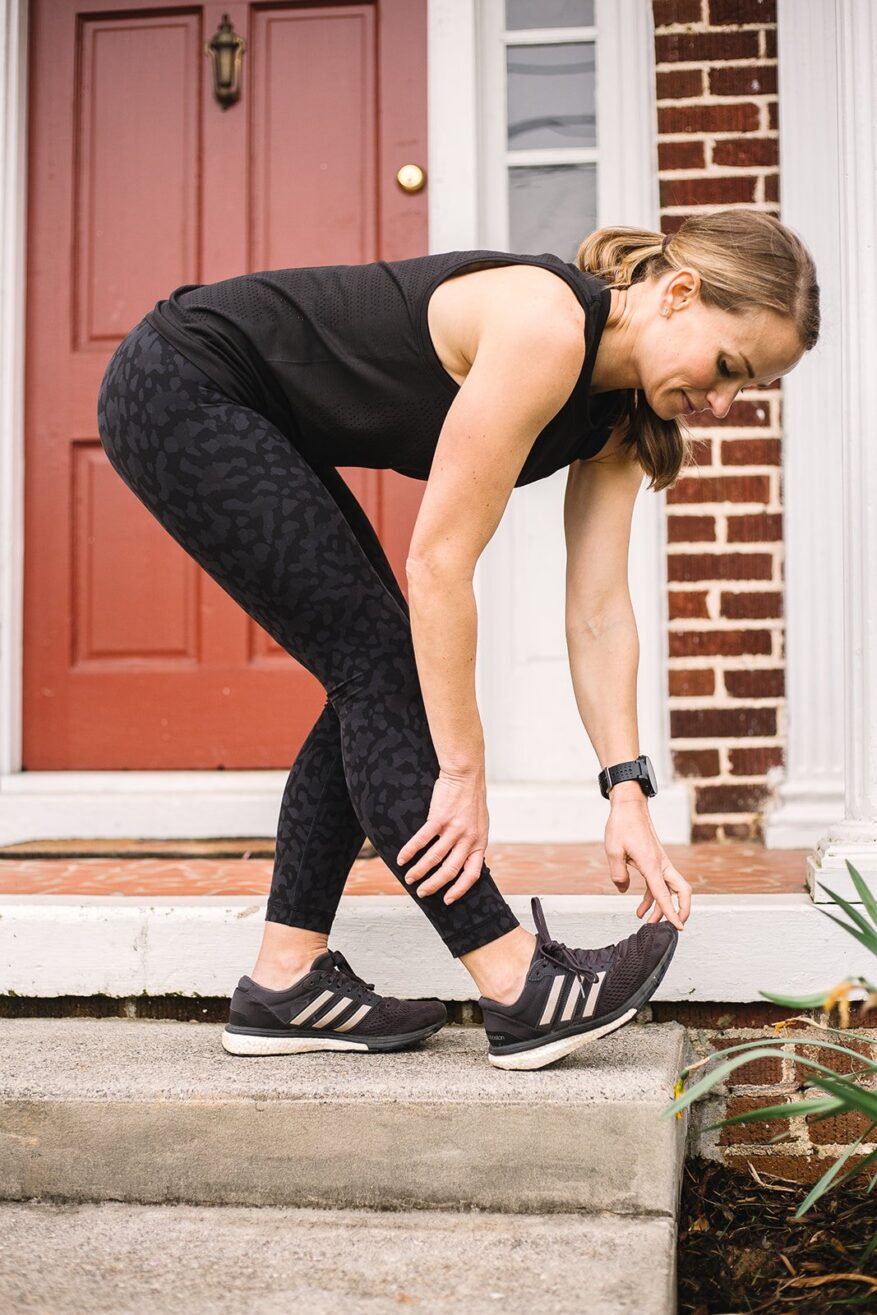


My Go-To Dynamic Warm Up Exercises for Running
Before a run, I always do dynamic stretches. Dynamic stretches are different than static stretches (where you stay in one place and hold a stretch for 30+ seconds etc.) because they involve a wider range of motion, and their goal is to wake and warm up your muscles and joints. Having warm and awake muscles will improve your running form, improve how you feel on a run and help prevent injuries when you workout. Static stretching does have its benefits, but it’s not ideal before a run (and can even lead to injury).
Warm up before a run (and stretching after) is part of how I was can stay injury free while increasing my mileage (among a few other things). And after battling constant injuries, I knew I needed to prioritize taking time to wake up my body and take care of my body after a run with a cooldown, stretching and mobility work. (Standing pigeon is one of my favorite post-run stretches!)
But what exactly does mobility mean? It’s different from being flexible. Mobility refers to a joint’s range of motion. When two bones come together, they do so at the joint. And as you move your bones, your joints move. The more mobility you have, the more range of motion you have. Dynamic stretches are one of the best ways to increase your mobility and rotation, and therefore, range of motion. Many people get mobility confused with flexibility. While they’re related and you can’t have one without the other, today I’m focusing on mobility and how dynamic stretches improve it!
If you don’t have enough mobility, your running mechanics can be altered (which lead to injury) and it can lead to chronic joint stiffness (which can also lead to injuries). I find that so many people who are new to running say they don’t like it or it hurts, but I often wonder if a proper warm up could improve things. I feel so strongly about it that I have an entire lesson dedicated to how I warm up inside my online running course. In the course, you’ll see videos of how I do these stretches, which may help you understand how to do them a little better.
Okay, let’s get into what my warm up looks like.
I do all of these movements for about 10 to 15 reps on each side, or about 30 seconds each. I run through this sequence at least once before I head out on a run, or two to three if I’m feeling extra stiff (which happens more with every passing year!).
Standing on one leg (your left foot for this example), lift the other leg so that your quad it at hip height parallel to the ground and right knee is bent at 90 degrees. Move your leg back and rotate, making small circles with your hip. Then reverse the direction. This helps loosens hips and glutes. Then do the same with your left knee.
This looks like it sounds. Standing with one foot planted, with a slight bend behind your standing knee, swing your other leg straight up to touch your hand. Keep the swinging leg as straight as you can, and work on swinging it forward, not back. This will help loosen your hamstrings. You should feel a gentle pull along the back of your leg.
This is similar to Toy Soldiers but has a broader range of motion. Keep your hips square and facing forward, and your swinging knee should stay bent. Swing your leg forward and back, trying to get a fluid motion. Hold onto something for balance. This helps loosen your hip flexors.
These are similar to the exercise above, but instead of swinging back and forth, you’ll swing your leg side to side, crossing in front of your body. I highly recommend holding onto something for this one too! This also loosens hips and start to warm up the outer edges of our thighs (hey IT band!) and glutes.
Place one foot slightly in front of you and reach down for your toe. Don’t overstretch and don’t hold too long. You’re simply telling your muscles to wake up and focus on pushing your hip bones back. I like to think of it as sweeping my toes before lifting my arms back up overhead.
Making sure your hamstrings are warm and loose is key to preventing injury. Stand with your feet wider than your hips, and bend to touch your toes with a bend in your knees. When you’re bent over, near touching your toes, sit into a squat, and then extend to stand and touch your toes again.
I try to do lunges in all directions to warm up my glutes and hamstrings. I do these towards the end of the rest of my dynamic stretches since they always feel a little better when the rest of my body is warmed up. Do 10 forward lunges, 10 reverse lunges, and 10 side lunges. Repeat on the other side.
Standing with your feet under your hips, raise to your tip toes and then lower back to return to starting position. This helps warm up your calves and plantar fascia.
Another thing I love to do is roll my legs with my Roll Recovery R8 massage roller. This tool simulates foam rolling, but you can stand and use it. It massages your muscles. Many times, when you’re running in the morning, the layer of fascia is covering your muscles gets tight tight. This roller helps break it down a little so you feel more fluid. I use it on my calves, quads, hamstrings, and even glutes.
Joggings slowly, kick your heels up to your seat on each stride. This warms up your entire body and prepares your body for the impact of running.
Standing on one leg, pull your other knee toward your chest and hug. This will loosen your lower back and hips!
I hate high knees, but they help! I save these for last, once I’m more warmed-up. You can do these either running or walking, or even standing. Bring your knee as high as you can to your chest and then put it back down. Alternate your right and left leg. You could try doing these as high-knee skips as well.
I highly recommend dynamic warmup stretches for your routine before heading out on your runs. Getting your muscles and ligaments warm and loose will make all the difference in injury prevention and make your runs feel so much better! If you don’t do all of these exercises, at least do some sort of stretch before a run. Or check out this warm up from Runner’s World. You’ll thank me later!
My favorite running gear


Leave a Comment